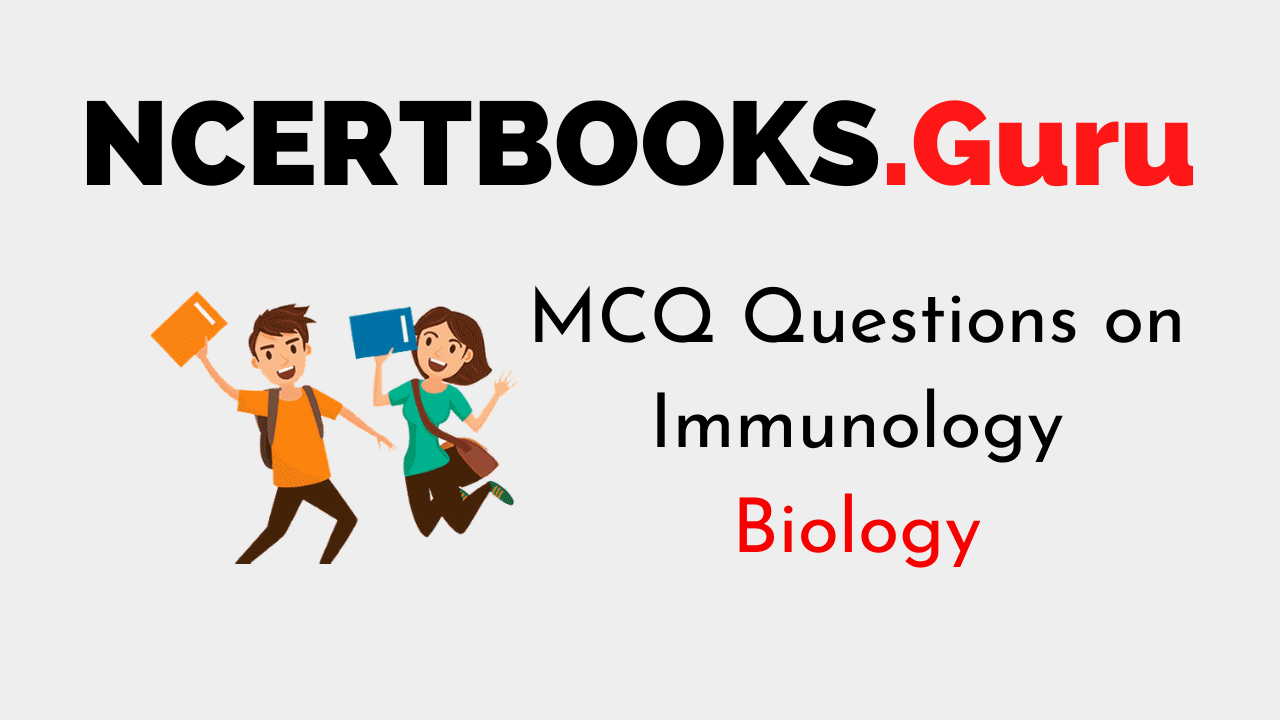Biology is the study of life. Below, You will find a list of Biology MCQ Questions as per the latest prescribed syllabus. Ace up your preparation with the Objective Questions available on Food Microbiology and enhance your subject knowledge. Understand the concept clearly by consistently practicing the Multiple Choice Questions and score well in your exams.
MCQ Questions on Food Microbiology
1. The branch of biology, which involves the study of immune systems in all organisms is called_________.
(a) Zoology
(b) Microbiology
(c) Immunology
(d) Biotechnology
Answer
Answer: (c) Immunology.
2. Which of the following immunity is obtained during a lifetime?
(a) Acquired immunity
(b) Active immunity
(c) Passive immunity
(d) None of the above.
Answer
Answer: (a) Acquired immunity
3. How many types of antibodies are there?
(a) Five.
(b) Three.
(c) Two.
(d) Four.
Answer
Answer: (a) Five.
4. Which of the following cells is involved in cell-mediated immunity?
(a) Leukaemia
(b) T cells
(c) Mast cells
(d) Thrombocytes
Answer
Answer: (b) T cells.
5. Which of the following protects our body against disease-causing pathogens?
(a) Respiratory system
(b) Immune system
(c) Digestive system
(d) Respiratory system
Answer
Answer: (b) Immune system.
6. Hepatitis is an example of _______.
(a) Subunit Vaccine
(b) Killer Vaccine
(c) Toxoids Vaccine
(d) Recombinant Vaccine
Answer
Answer: (d) Recombinant Vaccine.
7. Which of the following statements is true about the IgM of humans?
(a) IgM can cross the placenta
(b) IgM can protect the mucosal surface
(c) IgM is produced by high-affinity plasma cells
(d) IgM is primarily restricted in the circulation
Answer
Answer: (d) IgM is primarily restricted in the circulation.
8. Which of the following statements is true about TNF alpha?
(a) Evoke Th cells
(b) Induce TGF beta production
(c) Decrease vascular permeability
(d) Increases the expression of adhesion molecules
Answer
Answer: (d) Increases the expression of adhesion molecules.
9. The cytotoxic T cells recognize antigen in association with_________.
(a) Class III MHC determinants
(b) Class II MHC determinants
(c) Class I MHC determinants
(d) Both Class I and II MHC determinants
Answer
Answer: (d) Both Class I and II MHC determinants.
10. Which of the following cytokines can increase the body temperature directly?
(a) Il-2
(b) IL-3
(c) IL-6
(d) IL-8
Answer
Answer: (c) IL-6.
11. Which of the following can inhibit inflammation?
(a) RO
(b) TNF-ɑ
(c) Protein C
(d) Neuropeptide Y
Answer
Answer: (c) Protein C
12. Which of the following statements is true about the Th-1 cells?
(a) They do not express CD4
(b)They do not produce TNF𝞬
(c)They do not activate macrophages
(d) They do not bind to soluble proteins
Answer
Answer: (d) They do not bind to soluble proteins.
13. Which of the following statements is false about the receptors of Innate Immune system?
(a) They include MHC complexes
(b) They include scavenger receptors
(c) They recognize their molecular patterns
(d) They are included in the Toll family of receptors.
Answer
Answer: (a) They include MHC complexes.
14. The stimulation of antigen-specific T-cells results in _________.
(a) Allergies
(b)Production of IL-3
(c) Cell division
(d) Cytotoxicity
Answer
Answer: (a) Allergies.
15. The thymus independent type I antigen are _________.
(a) Viral nucleic acids
(b) Bacterial nucleic acids
(c) Small proteins of bacterial origin
(d) The polysaccharide of bacterial origin
Answer
Answer: (d) The polysaccharide of bacterial origin.
